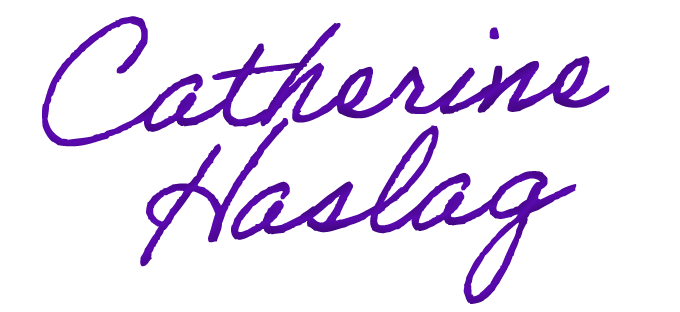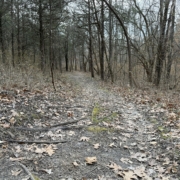Statement of Teaching Philosophy 2022
My teaching philosophy has evolved over my nearly 20 years of experience in education. Initially, it revolved around using different methods of instruction to reach students of varying learning styles. While I still practice this in the classes I teach, my vision of my role as an educator and my understanding of higher education have expanded and become more three-dimensional. Despite this evolution, my ultimate goal as an educator remains the same: I want to positively impact my students and help them develop the tools they need to succeed in their educational and career goals.
My current teaching philosophy has four components. 1) An effective teacher needs to be a life-long learner and possess a growth mindset. 2) A faculty member at a community college is an educational leader and resource for the community. 3) A teacher should be an example to students of operating in a professional atmosphere and navigating life healthily. Finally, 4) Teachers need to meet students where they are in their educational journey.
Component #1: An effective teacher needs to be a life-long learner and possess a growth mindset. I am my first and primary student. If I do not make time for my growth and seek out learning opportunities, I will not provide the best educational experience to my students. In the fall 2020 and spring 2021 semesters, I expanded my education by taking additional graduate credits through MSU-Mankato. These courses discussed culturally responsive pedagogy (CRP) and helped me incorporate CRP into my classes. I developed a project where General Chemistry I students study the chemical causes and societal impacts of the Flint Water Crisis and assess if it could happen to them. My General Chemistry II students will expand their view of climate change by studying ocean acidification through a CRP lens, marrying chemical causes to their human impacts and how those impacts vary based on race and class. By remaining a life-long student, I grow my skills as an educator and create new content for my students. I also demonstrate to students what it means to be a life-long learner, a trait most of the jobs of tomorrow require from the workforce.
Component #2: A community college is an educational leader and resource for the community. Community college faculty are leaders in the academic community and a resource for other educators. I have tried to position myself as a professional resource for the Austin community through my involvement in supporting the local elementary school science fairs as a judge, special awards organizer, through my development of and leadership in the Science Fair Mentoring Project (SFMP), and as an advisor to the Hormel Institute, a leading cancer research facility. Working with 3rd and 4th-grade students through SFMP provided the teachers and students at Austin elementary schools an additional science education resource. It improved my understanding of how to reach my college students because I am challenged to create ways to explain scientific concepts to younger students differently—these new ways of presenting scientific ideas improved my teaching in the college classroom. Working with the teachers in the elementary schools has also exposed me to new classroom management skills, many of which are transferable to my college classes. In addition, I serve on the Community Advisory Board for the Hormel Institute, where I use my knowledge of the school system and passion for science education to advise the institute on science outreach programs in Mower County. Not only am I able to offer my expertise to other educators and students outside of those at the college, but I also find working with other community educators has helped to develop my educational skills and supports my growth as an educator.
Component #3: A teacher should also be an example to students of operating in a professional atmosphere and navigating life healthily. I summarize this idea as, “Let it begin with me.” I need to be the first to practice what I am teaching to my students. If I want my students to use proper email etiquette, I must demonstrate this skill consistently. If I want students to meet due dates, I need to set and meet expectations on when I will have papers graded. If I want students to take the course seriously, I need to take it seriously by coming to class prepared and on time. Students will see my example and learn from it. If I do not practice it, I can not expect my students to, nor am I in a position to offer advice to help them become better learners and contributing members of society.
Component #4: Teachers need to meet students where they are in their educational journey. Students come into my classes at all levels of preparedness and maturity and with a wide variety of life experiences. It is crucial to meet students where they are in their education and humanize the struggle of obtaining an education and being alive. Students are often unprepared in math, writing, study, and notetaking skills. Most students are generally unprepared for the amount of work and responsibility college requires. Some students need mental health support or are experiencing food insecurities. I work to identify the needs of students and direct them to resources that can help. I also share tips/tricks with students that helped me in college. I want students to know that learning will be hard at times, and this is okay. Even I struggled in college, but I stuck with it and kept going. I learned new skills and techniques to help me handle the challenges of higher education. I love watching students’ eyes light up as they suddenly understand a concept they struggled to master. I find it very rewarding to see my students succeed in their classes and develop an appreciation and understanding of chemistry. This growth can not happen unless we meet them where they are without judgment.
Higher education has changed a lot since I attended college. Still, the ultimate goal of education remains the same: help students develop critical thinking and problem-solving skills, ignite their desire for life-long learning, and prepare them to function successfully in an information culture. Hopefully, the final product of all of this is better citizens of the earth.

 © 2025 Catherine Haslag, All Rights Reserved
© 2025 Catherine Haslag, All Rights Reserved © 2025 Catherine Haslag, All Rights Reserved
© 2025 Catherine Haslag, All Rights Reserved Created using Canva
Created using Canva © 2025 Catherine Haslag, All Rights Reserved
© 2025 Catherine Haslag, All Rights Reserved Created using Canva
Created using Canva © 2026 Catherine Haslag, All Rights Reserved
© 2026 Catherine Haslag, All Rights Reserved Photo taken by Mark Okon and used through the Unsplashed License
Photo taken by Mark Okon and used through the Unsplashed License Created using Canva
Created using Canva